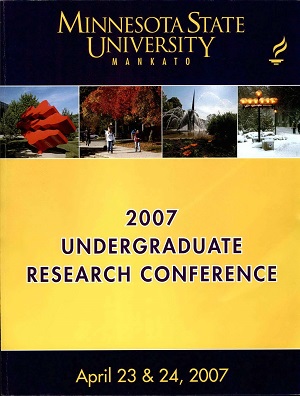E20 Effects on Automotive Fuel Pumps
Location
CSU 202
Start Date
23-4-2007 3:00 PM
End Date
23-4-2007 5:00 PM
Student's Major
Automotive and Manufacturing Engineering Technology
Student's College
Science, Engineering and Technology
Mentor's Name
Gary R. Mead
Mentor's Department
Automotive and Manufacturing Engineering Technology
Mentor's College
Science, Engineering and Technology
Description
The State of Minnesota has mandated that 20% of all gasoline is to be made up of ethanol. Before this mandate can be implemented, extensive research must be conducted to ensure compatibility of the fuel systems operating on E20 in all automobiles along with small engine and marine applications. The goal of this study was to compare the effects of E20 versus that of ElO and ASTM Test Fuel C. The E20 fuel pump project focused primarily on automotive fuel pumps, and how E20 affected the performance of the pump in terms of corrosion and endurance.
E20 Effects on Automotive Fuel Pumps
CSU 202
The State of Minnesota has mandated that 20% of all gasoline is to be made up of ethanol. Before this mandate can be implemented, extensive research must be conducted to ensure compatibility of the fuel systems operating on E20 in all automobiles along with small engine and marine applications. The goal of this study was to compare the effects of E20 versus that of ElO and ASTM Test Fuel C. The E20 fuel pump project focused primarily on automotive fuel pumps, and how E20 affected the performance of the pump in terms of corrosion and endurance.
Recommended Citation
Devens, Thomas; Nathan Hanson; Adam Larson; and Colin Rohde. "E20 Effects on Automotive Fuel Pumps." Undergraduate Research Symposium, Mankato, MN, April 23, 2007.
https://cornerstone.lib.mnsu.edu/urs/2007/oral-session-08/1




